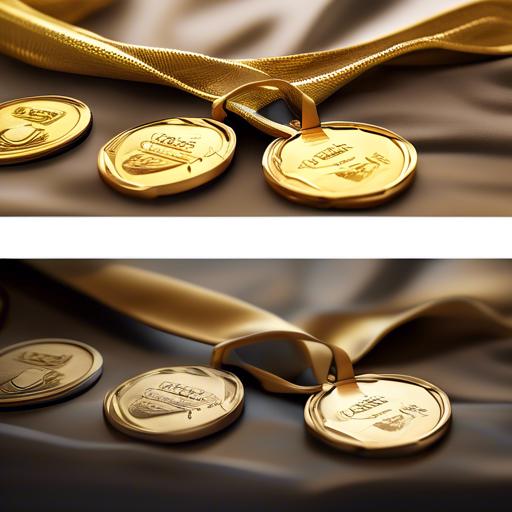Ever wondered if the Olympic gold medal you see athletes proudly display on the podium is really made of 100% pure gold? Well,you’re not alone. Let’s delve into the age-old question: Is the Olympic medal actually real gold or just a shiny facade?
Uncovering the Truth Behind Olympic Gold Medals
Have you ever wondered if Olympic gold medals are actually made of real gold? Well, the truth may surprise you! while the gold medals handed out at the Olympics are certainly prestigious, they are not entirely made of gold. In fact, Olympic gold medals are required to contain a minimum of 92.5% silver, with just a thin layer of gold plating on top.
Despite their name, olympic gold medals are actually more silver than gold. The gold plating is there primarily for symbolic reasons, to represent the highest level of achievement in sports. So next time you see an athlete proudly displaying their gold medal, remember that it’s not all about the gold!
The Composition of Olympic Medals: Is it Really Gold?
Have you ever wondered if olympic medals are really made of pure gold? Well, the truth might surprise you! while Olympic gold medals must contain at least six grams of gold, the rest of the medal is typically made of silver. In fact, most gold medals are composed of about 92.5% silver,with only a thin coating of gold on the surface.
But what about the iconic gold color of the medals? This is achieved through a process called gilding, where the silver base is coated with a thin layer of gold using a specialized technique. So, while Olympic gold medals may not be completely made of gold, they still hold immense value and prestige in the world of sports. Next time you see an Olympic champion proudly holding up their medal, just remember that it’s not all gold!
Why Olympic Gold Medals Aren’t Pure Gold
When athletes win Olympic gold medals, most people assume they are made of pure gold. Though, the truth is that olympic gold medals are not actually made of solid gold. Actually,the last time a solid gold medal was awarded at the Olympics was in 1912. So why aren’t Olympic gold medals pure gold? Here are a few reasons:
- Cost: Solid gold is extremely expensive, so creating hundreds of gold medals for each Olympic Games would be financially unsustainable.
- Hardness: Pure gold is a very soft metal, which makes it less durable for everyday wear. By mixing gold with other metals, the medals can be made stronger and more resistant to damage.
Exploring the Value and Significance of Olympic Medals
Have you ever wondered if Olympic medals are real gold? The truth may surprise you. While the medals awarded at the olympic Games are certainly valuable, they are not made entirely of gold. In fact, the gold medals are mostly silver, with just a thin layer of gold plating. This is due to the high cost of gold and the sheer number of medals awarded at each Olympics.
This means that if you were to melt down a gold medal, you would find that it contains a larger percentage of silver than gold. However, the value of an Olympic gold medal goes far beyond its material composition. these medals represent the pinnacle of athletic achievement and symbolize the hard work,dedication,and sacrifice that athletes put in to reach the top of their respective sports. So while the gold may not be pure,the value and significance of an Olympic medal are truly priceless.
Q&A
Q: Is the Olympic medal really made of solid gold?
A: No, actually it is not. While the gold medal does contain a small amount of gold, it is mostly made of silver.
Q: So how much gold is in an Olympic gold medal?
A: The gold medal is required to contain at least 6 grams of pure gold, but the rest of the medal is typically made of silver.
Q: Why not make the entire medal out of gold?
A: The cost of producing solid gold medals would be extremely high, so using a mix of materials helps keep the costs down while still maintaining the prestige of winning a gold medal.
Q: What about the silver and bronze medals?
A: The silver medals are made of mostly silver, while the bronze medals are mostly made of copper with a small amount of zinc.
Q: So, are the Olympic medals actually valuable?
A: While the medals themselves may not have a high intrinsic value due to their composition, the prestige and honor of winning an Olympic medal make them priceless in the eyes of the athletes and fans.
Insights and Conclusions
And there you have it, folks! Despite the longstanding myth, Olympic medals are not made of pure gold. While they do contain a small amount of precious metal, the majority of the medal is actually composed of silver and other materials. So next time you see an Olympic athlete proudly sporting their medal, you can now impress your friends with your newfound knowledge about the composition of these coveted awards. Stay tuned for more captivating insights into the world of sports and the Olympic Games!


